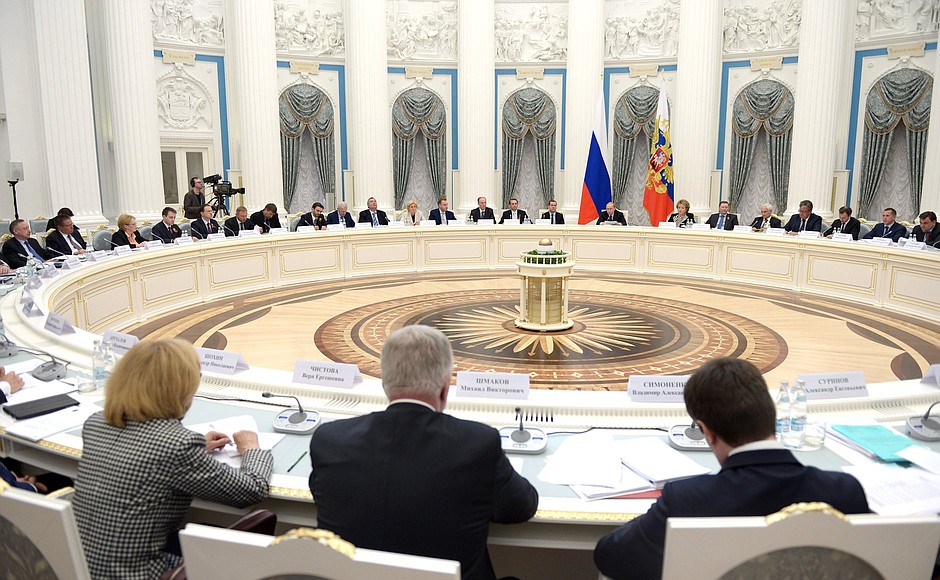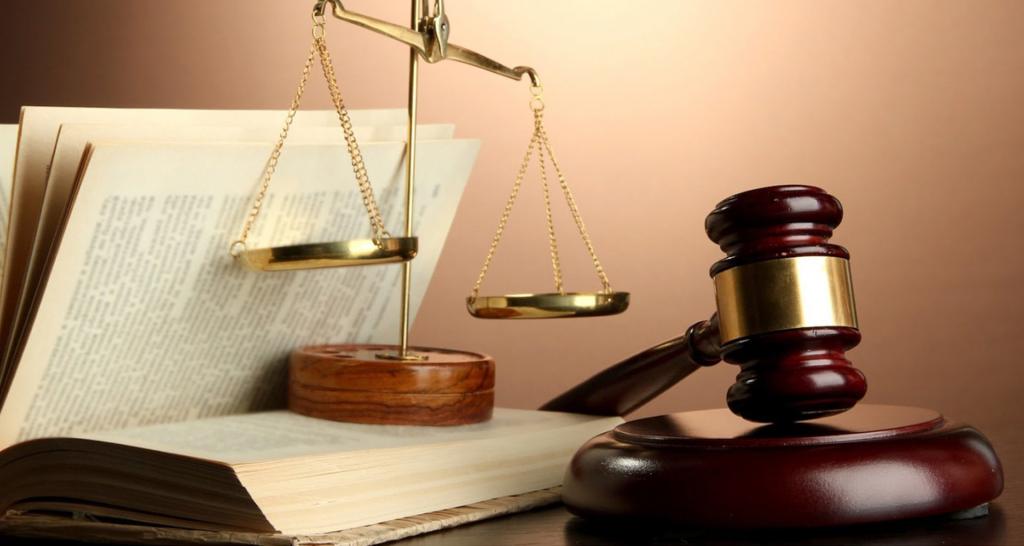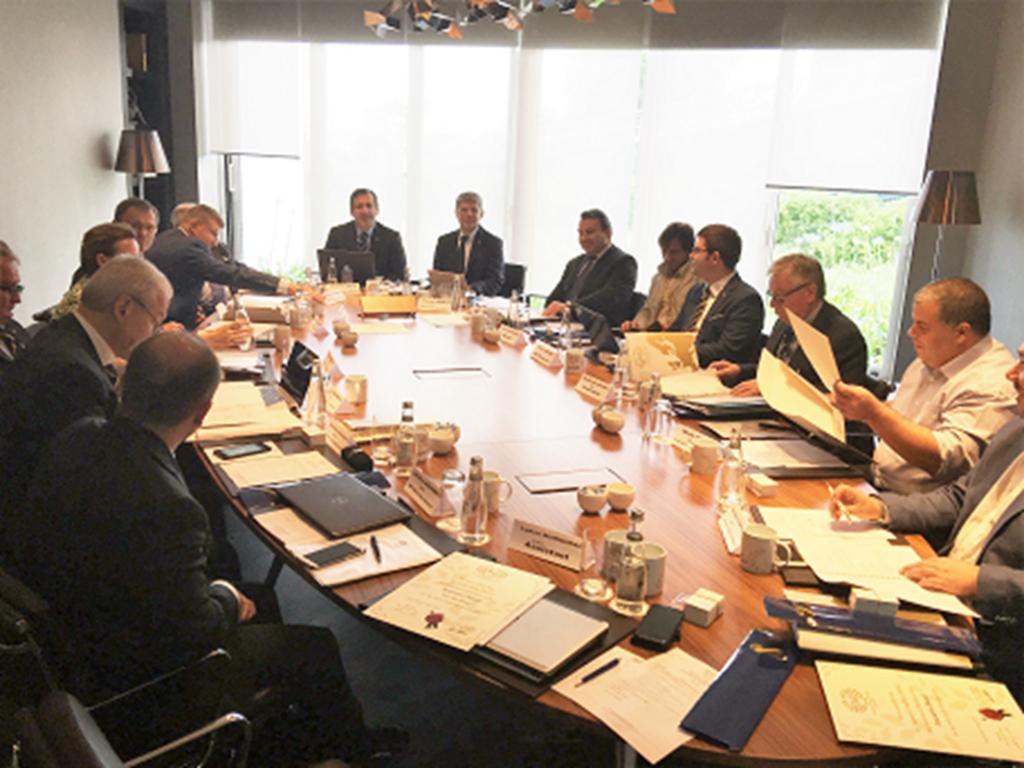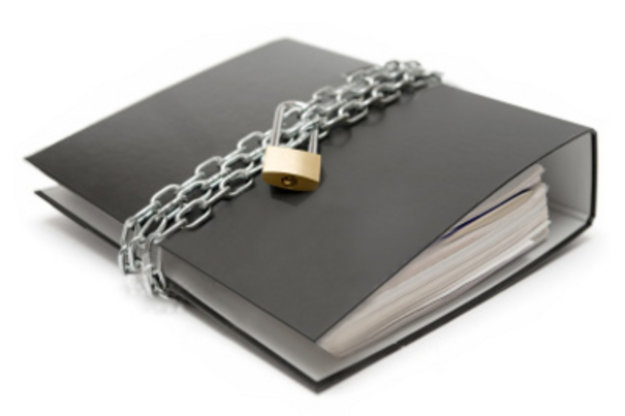One of the executive bodies of the Russian Federation, in accordance with the Law "On State Secrets", acting at the federal level, is the Commission on the Protection of State Secrets, which belongs to the group of interdepartmental bodies. What are the features of her work? What are the main areas of activity and what composition does it have? Consider all this in more detail below.

General concept and legal status of an authority
The interagency commission, considered in this article, is a body assigned to the structure of the executive branch, functioning at the federal level. It is worth noting that all regulatory acts adopted by this state structure are binding on all authorities of certain state entities, enterprises, organizations, as well as private individuals.
The legal status of this Commission is determined by the provisions enshrined in Decree of the President of the Russian Federation No. 1286 of October 6, 2004. It says that this Interdepartmental Commission is the main body providing solutions to problems arising from the imperfection of measures taken to protect information throughout the Russian Federation.
The interdepartmental commission for the protection of state secrets is subordinate to the President of the state, who is engaged in the appointment of its head (or is such himself).
Body structure
Speaking about the features of the structure of the Commission in question, it should be noted that this body belongs to the group of collegial ones. The chairman of the Interdepartmental Commission is the current President of the state or a person appointed by him personally. So, at present, this post is occupied by the Advisor to the President.
In addition to the chairman, the body under consideration includes deputy managers, as well as designated responsible secretaries, state secretary and several assistants.
Considering the composition of the Interdepartmental Commission for the Protection of State Secrets, it is worth paying attention to the fact that it includes persons holding senior positions in the field of security at the national level:
- Minister of Internal Affairs;
- Head of GUSP;
- Minister of Industry
- Minister of Finance;
- Head of Government
- Head of the State Legal Department of the President;
- Chairman of the SBRF and his deputy;
- Attorney General and his assistants;
- Minister of Justice;
- FSTEC Director;
- Head of the Department of Foreign Intelligence and his deputy;
- FSO director and his deputy.
The composition of the body is approved exclusively by the President of the country by signing a separate decree.

What guides the Commission in its activities
As for the peculiarities of regulation of the activities of the Interdepartmental Commission under consideration, it is carried out on the basis of the provisions presented in some acts included in the modern system of legislation. These include:
- Constitution of the Russian Federation;
- Law "On State Secret";
- acts of the President;
- acts of the Government;
- international treaties ratified by the Russian Federation;
- project "Concepts for improving legal security in the information environment of the Russian Federation."
It is worth noting that this Commission should carry out all types of its activities only on the basis of the listed acts. As for the directions of activity of this state structure, as well as its duties and rights, they are most detailed in the content of Decree No. 1286 mentioned above.

About activities
Special attention should be paid to those areas in which the Commission in question operates. Of these, the main one is that which determines security in the field of state security. secrets. As for the process of implementing the protection of classified data, it is carried out using non-cryptographic methods. Any information that contains data of official or state secrets can act as a protected object. Speaking about the areas of protection, this type of activity of the Commission implies preventing leakage of classified information through technical channels, unauthorized access to it, as well as from specific measures of influence on it, the purpose of which may be the destruction of information, their blocking, distortion, etc. A number of issues of the Interdepartmental Commission for the Protection of State Secrets also include the development and implementation of countermeasures against technical intelligence on the territory of the Russian Federation, or, to put it more simply, I language, ensuring the technical protection of information.
In addition, this body, by virtue of the authority entrusted to it, actively conducts monitoring and coordinating activities in relation to all bodies classified as state power, as well as local self-government.
And, finally, another important area of activity of the structure under consideration is that its members have the opportunity to take an active part in the development of new bills in the field of ensuring the security of state secrets and its safety. In addition, this structure has the right to take part in improving the legislation currently in force in this field.
It should be noted that the documents of the Interdepartmental Commission for the Protection of State Secrets, published for universal access, are binding on all authorities, as well as ordinary citizens.

Credentials
It is worth noting that the Commission in question has a certain list of powers secured by law in the contents of Decree No. 1286. Its second section provides a complete list of them.
Among the powers of the Interdepartmental Commission for the Protection of State Secrets, modern legislation includes:
- coordination of activities of authorities throughout the country, at various levels;
- development of proposals for improving the system of protection of state secrets, as well as their subsequent submission to the President and the Government;
- formation of a complete list of the information that should be classified as state secrets;
- the formation of a list of posts that have access to information that is a secret nationwide;
- formation of a list of special regime objects of the Russian Federation, as well as its subsequent submission to the Government;
- determination of a strict procedure for declassifying information classified as a state secret;
- the process of declassifying the data of the CPSU, the Government of the USSR, as well as all other documents that are in the archives and have the corresponding security stamp;
- consideration of requests submitted by various bodies for declassifying the facts under the heading of secrecy;
- coordination of work ongoing in the field of training or subsequent retraining of all personnel with access to classified information.
Next, we consider a special list of functions assigned to persons holding key posts in this state structure.
Chair functions
Speaking about the main tasks of the chairman of the Commission, it is worth noting that they are to ensure the normal functioning of the structure. The main functions of the person holding the post of chairman of the Interdepartmental Commission include:
- organization of activity of the structure;
- reporting to the President on the work of the Commission;
- signing of all documents under the jurisdiction of the Commission;
- Establishment of the Rules of the Interdepartmental Commission.
It is also worth noting that it is the chairman of the organization in question who is carrying out the process of introducing draft laws and other normative acts for consideration by the President and the Government that were developed by the body in order to improve the work of the Interdepartmental Commission.

Deputy Functions
Speaking about the functions assigned to the deputy chairman of the Interdepartmental Commission, it is worth noting, first of all, that in the absence of a leading person during meetings, it is he who is assigned the role of ensuring all his functions. As for the list of the main functions of this official, they include:
- representation of the Interdepartmental Commission in all relations that arise in the course of work with other authorities in the state;
- use of databases of the Presidential Administration;
- organization of detailed planning of the Commission;
- making reports to the chairman regarding the conduct of the work of the Interdepartmental Commission;
- organization of preparation for meetings of the body;
- ensuring full control over the proper implementation of decisions adopted by the Commission at its meetings;
- determination of the exact procedure for consideration by the Interdepartmental Commission of certain issues referred to its area of competence;
- organization of proper interaction with other authorities on certain issues of interaction on issues within the competence of the Interdepartmental Commission.
It is worth noting that, on a separate order issued by the chairman of the body in question, the deputy can get the right to sign all documents whose certification is within the competence of the state structure in question.
Executive Secretary Functions
In the Commission under consideration, the person ensuring the coherence of the Commission is the secretary, whose duties should also be considered in detail.
The list of functions of the executive secretary include:
- organization of work related to the preparation of reports to the President regarding the work of the Interagency Commission;
- ensuring the normal organization of work related to the preparation of draft laws, the content of which is directly related to the provision of state. secrets;
- conducting preparation for meetings of the Commission;
- ensuring high-quality and timely preparation of draft plans for further actions of the Commission;
- organization of normal work to compile the data, documents and materials necessary for the normal work of the Commission;
- solving organizational issues regarding the work of expert groups, as well as to ensure the work of the Interdepartmental Commission.
Who can serve as executive secretary? As a rule, a deputy director of the FS who carries out export and technical control is appointed to this position.
Support for the activities of the Interdepartmental Commission
Speaking about the peculiarities of technical support for the activities of the Commission in question, it is worth noting that this responsibility lies with the FS central office for export and technical control.
As for the peculiarities of holding meetings of the commission in question, they are carried out in strict accordance with the indicated Regulations approved by the chairman of the structure. All members of the Commission are required to attend its meetings. In cases where a particular person does not have the physical ability to be present on his own, he has the opportunity to delegate his duty to another official. In addition, it is allowed to consider the views of an individual member of the Commission, set out in writing on paper. In the decision-making process, all members of the structure have equal rights among themselves. In the event that one of its participants has a protest about the decision, then he has the right to state it in writing, as well as to propose a review of it taking into account certain features. This document should be attached to the minutes drawn up during the meeting. It is worth noting that if a member of the structure representing the federal authority puts forward a protest against a generally accepted decision, then it cannot be taken.
Decisions made at meetings of the Interdepartmental Commission are binding on all government bodies, as well as government and local authorities. if necessary, decisions made can be sent personally to the President of the country, as well as to individual local authorities and local authorities. In some cases, such decisions result in the development of draft decrees and orders by government bodies.

On improving the work of the Interdepartmental Commission
Recently, active work has been ongoing at the federal level aimed at improving legislation. It is worth noting that, according to most experts in the field of jurisprudence and state security, along with everything, it is also necessary to improve the legislation in the field of the work of the Interdepartmental Commission. As for the directions in which the possibilities of introducing improvements should be considered, they should, first of all, concern the formation of a unified national system for ensuring the information security of the country's subjects.
Also, many experts in these areas strongly recommend a more detailed analysis of regulatory acts regarding security in the information sphere, operating in other countries of the world.

How to contact the Commission
It is worth noting that the state structure under consideration is actively involved in processing applications from citizens who have certain information regarding violations of the law in the field of state secrets, as well as the entry and exit of certain individuals outside the Russian Federation.
To make an appeal to a person, it is necessary to send an email to the official mail or to the address of its location. In addition, the appeal can be made in person, having pre-registered for a specific time using the phone number indicated on the site.

Address of the Interdepartmental Commission for the Protection of State Secrets: Moscow G-200, Smolenskaya-Sennaya Square, 32/34.
